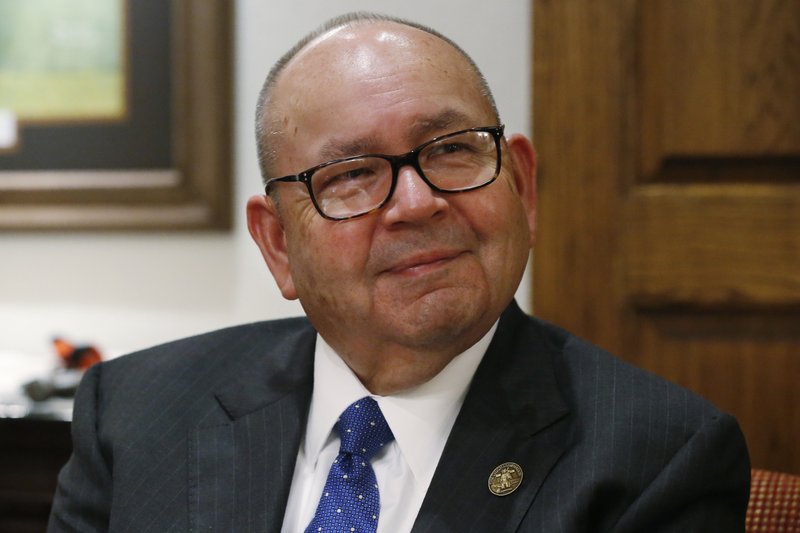OKLAHOMA CITY -- Three of the most powerful tribes in Oklahoma filed a federal lawsuit against the governor Tuesday, asking the court to help resolve a dispute over gambling at tribal casinos.
The Cherokee, Chickasaw and Choctaw nations want a federal judge to determine whether the state compacts allowing gambling exclusively at tribal casinos automatically renew Wednesday for another 15-year term. The tribes contend all the conditions have been met for the compacts to renew.
"For some time, we have tried to establish meaningful intergovernmental engagement regarding our gaming compacts, but you have continued to reject our compacts' plain terms," Cherokee Nation Chief Chuck Hoskin, Chickasaw Nation Gov. Bill Anoatubby and Choctaw Nation Chief Gary Batton wrote in a joint letter to Oklahoma's new Republican Gov. Kevin Stitt on Tuesday. "Recently, you have gone further, stating allegations against us and threats to our operations."
Stitt contends the gaming compacts expired Wednesday and casino gambling in Oklahoma will then will be illegal. Stitt wants to renegotiate the compacts to give the state a larger slice of revenue. An attempt by Stitt earlier in December to offer an extension of the compacts while negotiation continued was rejected by most of the tribes.
Stitt announced Tuesday two of the 39 federally recognized tribes in the state -- the Kialegee Tribal Town and the United Keetoowah Band of Cherokee Indians -- agreed to an eight-month extension of the compacts.
"The state of Oklahoma offered an extension, with no strings attached, to all tribes that operate casinos in the state, and my door continues to be open for more tribes to join who are worried about impending uncertainty," Stitt said in a statement.
Stitt added he was disappointed most of the other tribes in the state rejected his previous offers for arbitration or a temporary extension.
The dispute between the governor and the tribes has grown contentious since Stitt first signaled in an op-ed over the summer he wanted to renegotiate the compacts. Last week, Stitt's top adviser on tribal issues, Lisa Billy, resigned and accused the governor of creating an "unnecessary conflict" with the tribes.
Tribal officials have signaled they are open to renegotiating the rates of the compacts, but not until the governor acknowledges the compacts renewed Wednesday. Stitt hasn't conceded that point and maintains the compacts expired.
Under the compacts, approved by Oklahoma voters in 2004, tribes pay the state "exclusivity fees" between 4% and 10% on gambling revenue in exchange for the exclusive right to operate casinos. Those fees generated nearly $139 million for the state in 2018, most of it earmarked for education, on roughly $2.3 billion in revenue from games covered under the compacts.
Since the compacts were approved, casino gambling has exploded in Oklahoma with more than 130 casinos dotting the state, ranging from gas station annexes to resort-style casinos, many of them in border communities. The WinStar World Casino in a rural part of the state's Red River border with Texas includes hotel towers, more than a dozen restaurants and a 400,000-square-foot casino floor billed as the largest in the world. Tour buses filled with gamblers from neighboring Texas routinely shuttle into the casino's parking lot, which is also packed with cars sporting Texas license plates.
NW News on 01/02/2020
